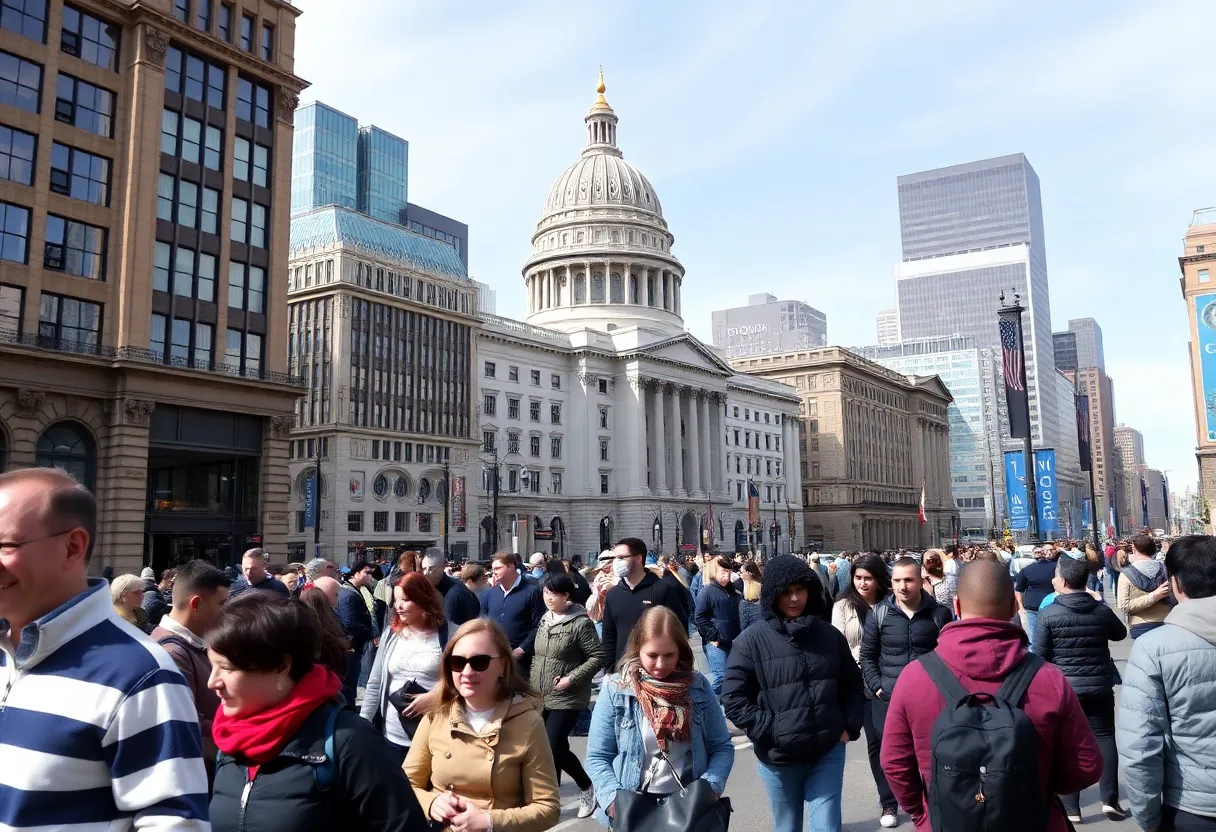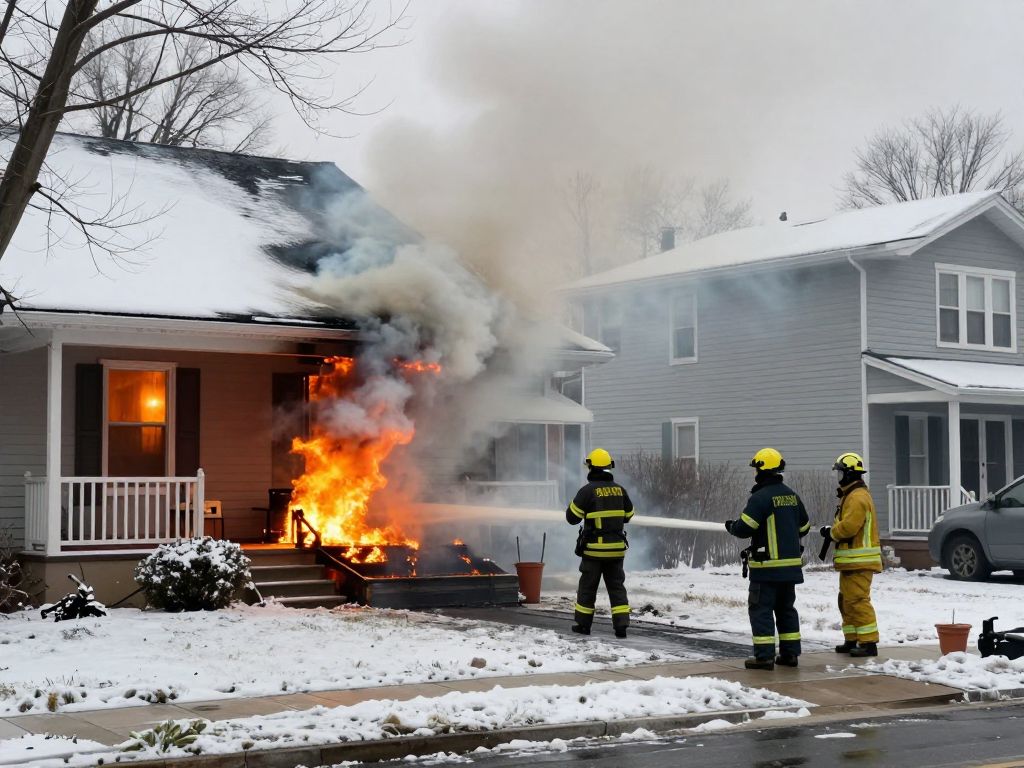Boston, October 19, 2025
News Summary
The federal government shutdown, which began on October 1, is significantly affecting Boston and its local economy. With approximately 25,698 federal civilian employees impacted in Massachusetts, many are expressing job security concerns. Essential services at Boston’s Logan Airport continue, but federal tourist locations like the JFK Library are at risk of closure. Local banks and charities are stepping up to assist affected workers, while the shutdown poses broader economic consequences nationally. Delays in services and funding disruptions highlight the urgent need for Congressional negotiations.
Boston
The federal government shutdown began on October 1 and is quickly approaching the second longest on record, with predictions it could surpass the 35 days from President Donald Trump’s first term. The impasse in Congress over spending and policy priorities has left hundreds of thousands of federal workers furloughed, slowed services, and strained local and national economies.
What is happening now
About 2.3 million civilian employees worked for the federal government as of March 31, with an estimated 750,000 furloughed each day during the shutdown. Many agencies are operating with reduced staff, while essential functions continue under special rules. Workers classified as excepted continue to provide critical services and will be paid retroactively after the shutdown ends. Nearly all of the nation’s 1.3 million active-duty service members received a temporary reprieve from missing paychecks as President Trump redirected Pentagon funds.
The estimated direct cost of the shutdown includes both lost economic activity and emergency payroll measures. The estimated cost of paying furloughed workers while at home is roughly $400 million per day. Agencies that process loans and permits have paused work, and key projects and contracts are delayed until funding resumes.
Local impact in Massachusetts and Boston
In Massachusetts, there are approximately 25,698 federal civilian employees affected, with many expressing concerns over job security and pay uncertainties. In Boston specifically, TSA employees and air traffic controllers at Boston’s Logan Airport are considered essential and will work without pay during the shutdown. If the shutdown continues, popular federal tourist sites in Boston, including the JFK Library and Bunker Hill Monument, will close.
Some local banks and charities in Massachusetts have begun offering assistance to affected workers, and state unemployment systems are preparing for potential claims. Food banks across the state are mobilizing to support federal employees who face immediate financial stress.
National consequences and industry effects
Across the country, the shutdown has led to delays in federally backed lending, tourism losses, and some transportation slowdowns. The travel industry expects to lose about $1 billion every week as visitors lose access to national parks and other federally managed sites. The Small Business Administration has suspended loan processing worth approximately $860 million per week, affecting about 1,600 small businesses. Issuance and renewal of flood insurance policies have been halted, delaying mortgage closings in flood-prone areas.
Air traffic control staffing shortages have been reported at multiple airports, contributing to flight delays in major hubs. Funding for transportation projects has been postponed, including an $18 billion allocation for a rail tunnel between New York City and New Jersey, which affects contractors and regional planning.
Workforce changes and legal challenges
The administration is pursuing a reduction in force intended to eliminate several thousand federal positions in agencies deemed outside current priorities; a reduction already affected 4,100 workers. Legal challenges have been brought against the planned mass firings, with a federal judge temporarily blocking them, citing political motivations. Lawmakers from both parties are confronting the fallout as many federal employees live paycheck to paycheck and report growing financial strain.
Food banks and community groups have stepped in to help furloughed workers, and some states are offering emergency unemployment benefits to ease immediate needs. Negotiations in Congress remain stalled, with Republicans saying any talks about healthcare funding should wait until after the government reopens, while Democrats are pushing for protections for millions of Americans in need of health insurance as part of any funding measure.
Public sentiment and next steps
Public opinion is split on responsibility for the shutdown. Polling indicates roughly 60% of U.S. adults attribute the largest share of blame to President Trump and Republicans, while 54% also place blame on Democrats. Lawmakers face mounting pressure from constituents and local officials as federal services remain disrupted and employees confront unpaid work and uncertain job prospects.
Officials warn that prolonged shutdowns typically shave off small amounts of economic growth—historical estimates place weekly growth reductions at about 0.1 to 0.2 percentage points per week—while immediate impacts on tourism, lending, and local service providers may be felt more sharply in pockets across the country.
Summary
The shutdown that began on October 1 continues to ripple through federal operations and local communities. With large numbers of employees furloughed, essential workers unpaid until funding is restored, and legal fights over workforce reductions underway, officials and service providers are bracing for continued disruptions until Congress reaches an agreement.
FAQs
When did the shutdown begin and how long might it last?
The federal government shutdown began on October 1 and is quickly approaching the second longest on record, with predictions it could surpass the 35 days from President Donald Trump’s first term.
How many federal civilian employees are affected and how many are furloughed?
About 2.3 million civilian employees worked for the federal government as of March 31, with an estimated 750,000 furloughed each day during the shutdown.
What is the daily cost of paying furloughed workers?
The estimated cost of paying furloughed workers while at home is roughly $400 million per day.
How many federal civilian employees are affected in Massachusetts?
In Massachusetts, there are approximately 25,698 federal civilian employees affected, with many expressing concerns over job security and pay uncertainties.
What is the situation at Boston’s Logan Airport?
TSA employees and air traffic controllers at Boston’s Logan Airport are considered essential and will work without pay during the shutdown.
Which federal tourist sites in Boston could close?
Popular federal tourist sites in Boston, including the JFK Library and Bunker Hill Monument, will close if the shutdown continues.
What happened regarding active-duty service member pay?
Nearly all of the nation’s 1.3 million active-duty service members received a temporary reprieve from missing paychecks as President Trump redirected Pentagon funds.
Have there been legal actions related to federal workforce cuts?
Legal challenges have been brought against the planned mass firings, with a federal judge temporarily blocking them, citing political motivations.
Quick reference table
| Item | Detail | Scope |
|---|---|---|
| Shutdown start date | October 1 | Nationwide |
| Federal civilian employees (total) | About 2.3 million (as of March 31) | Nationwide |
| Estimated furloughed per day | 750,000 | Nationwide |
| Daily cost to pay furloughed workers | Roughly $400 million per day | Nationwide |
| Active-duty service members temporarily covered | Nearly all of the nation’s 1.3 million | Nationwide |
| Small Business Administration loan pause | Approximately $860 million per week; affects ~1,600 small businesses | Nationwide |
| Travel industry loss | About $1 billion per week | Nationwide |
| Massachusetts federal civilian employees affected | Approximately 25,698 | State-level (Massachusetts) |
| Boston essential staff working without pay | TSA employees and air traffic controllers at Boston’s Logan Airport | State-level (Massachusetts / Boston) |
| Boston federal sites at risk of closure | JFK Library and Bunker Hill Monument | State-level (Massachusetts / Boston) |
Deeper Dive: News & Info About This Topic
HERE Resources
Federal Immigration Crackdown Sparks Protests in Massachusetts
Massive ‘No Kings’ Protest in Boston Draws 125,000 Attendees
Millions Expected at No Kings Protests Across the U.S.
Nationwide ‘No Kings’ Protests to Support Democracy
Trump Suggests Relocating World Cup Matches from Boston
Seth Moulton Challenges Ed Markey for U.S. Senate Seat
Woman identified in Roxbury daylight shooting
False Shooting Report at UMass Boston Causes Major Confusion
Thousands Expected at ‘No Kings’ Protests Across New England
Woman Fatally Shot in Roxbury, Boston
Additional Resources
- Boston 25 News
- CBS News
- Boston Globe
- Wikipedia: Government shutdown
- Encyclopedia Britannica: Government shutdown

Author: STAFF HERE BOSTON WRITER
The BOSTON STAFF WRITER represents the experienced team at HEREBoston.com, your go-to source for actionable local news and information in Boston, Suffolk County, and beyond. Specializing in "news you can use," we cover essential topics like product reviews for personal and business needs, local business directories, politics, real estate trends, neighborhood insights, and state news affecting the area—with deep expertise drawn from years of dedicated reporting and strong community input, including local press releases and business updates. We deliver top reporting on high-value events such as Boston Marathon, Head of the Charles Regatta, and Boston Harborfest. Our coverage extends to key organizations like the Greater Boston Chamber of Commerce and Associated Industries of Massachusetts, plus leading businesses in finance, biotech, and insurance that power the local economy such as Fidelity Investments, Biogen, and Liberty Mutual Insurance. As part of the broader HERE network, we provide comprehensive, credible insights into Massachusetts's dynamic landscape.





